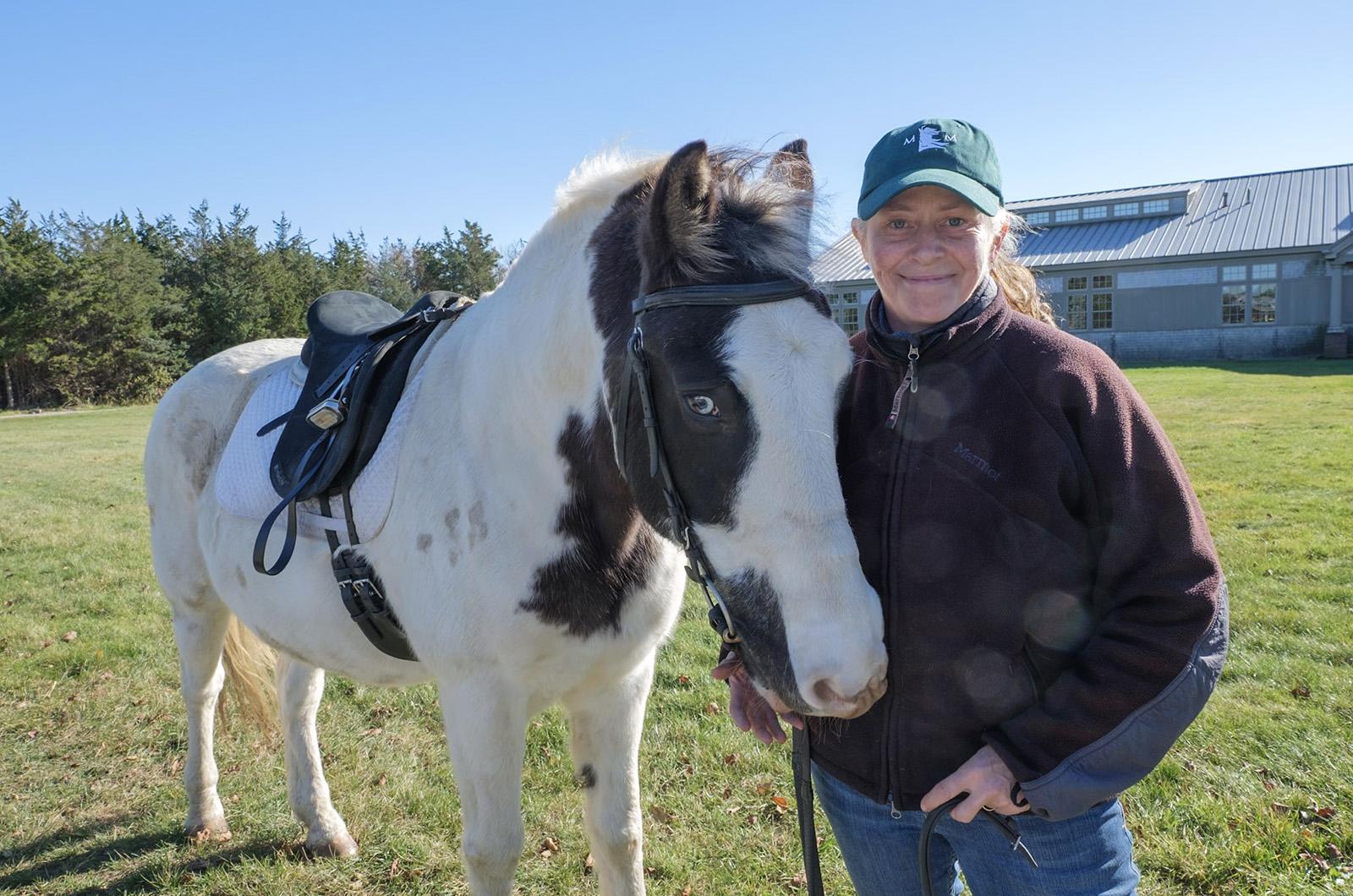In the last five years as the head of Misty Meadows Equine Learning Center, Sarah McKay has reckoned with more horse death than many owners experience in a lifetime, a charged emotional mix of grief and care. Since she took over as executive director, Ms. McKay has experienced eight horse deaths, four suddenly and four by planned euthanasia — perhaps the hardest decision a caretaker can make.
“It’s very hard,” she said. “There’s a side of it of responsibility...but there’s also that sense of when you know you’ve made the right decision for the horse, and that is a good feeling.”
It is a decision made all the more difficult by the deep bond that forms between horse and owner. More than a cat or dog, horses require constant care and attention during their 30-plus year lifespan, Ms. McKay said, and a caretaker’s mind is constantly on their charge. That level of responsibility weighs heavily when humans must confront the mortality of their animal.
“Anyone who's had the opportunity to have their own horse or have that connection, really understands how deep and meaningful it can be,” said Ms. McKay.
Misty Meadows has an older than average horse age than most equine organizations, Ms. McKay said, because many of their animals come to the organization for retirement after reaching an age where owners can no longer care for them. Upon arrival, though, many horses gain a “second career” in equine therapy.
“For the ones that do well at it, they love it,” Ms. McKay said.
Misty Meadow’s equine activities include horse riding and care opportunities for people with a variety of disabilities, providing mental and physical therapy for participants, as well as subsidized activities for Island kids. This summer, the organization installed a specialized mechanical lift enabling wheelchair users, including Camp Jabberwocky campers, to more easily mount the saddle.
Connection and interspecies communication are also central to their therapeutic mission.
“It can be everything from just understanding how they’re feeling, to really kind of understanding what they’re thinking,” Ms. McKay said. “You can read them in a way that is really kind of special.”
That social intelligence stems from horses’ herd lifestyle, she said, which requires coordination for the animals to prevent predation.
“A lot of our teaching is through the lens of the herd, which is how horses communicate with each other,” Ms. McKay said. “We’ll observe how they move together.... They have this very physical communication style that you really start to notice the subtleties of.”
That communication resonates with visitors of all ages to Misty Meadows, Ms. McKay said, from small children to Alzheimer patients. But care at Misty Meadows is a two-way street, especially as the burdens of aging become more prominent in the horses.
Chiropractic care and acupuncture, electro-magnetic pulse therapy and equine massage are all utilized to improve the later stages of life for the horses, along with frequent veterinary consultations. Inevitably, though, the burdens of time mount, and horses face age issues and illness. For employees and volunteers at the center, the difficult decision of euthanasia eventually comes to the fore.
The decision, Ms. McKay said, is made all the harder by the animals’ stoic strength. To avoid predation in the wild, they are in the habit of hiding their pain.
“Horses, being a prey animal, they don’t have words. They don’t have an ability to yell, or cry,” she said.
When the day comes for a horse to be put down, there is the tendency to second-guess, a familiar feeling to all pet owners who have made the same decision.
“You question yourself, right up until the end,” she said.
The goodbyes begin long before the horses are gone, Ms. McKay said, recalling the decision last year to put down the beloved Deborah, who was into her 30s. Deborah was the longtime companion of another Misty Meadows horse, Noble; the two have been together for more than 20 years. Both were beset by dental problems, and while an operation last year improved Noble’s health, Deborah’s condition deteriorated.
“Deborah continued to lose weight and did not thrive.... She would stagger getting up and fall over again and it was really hard,” Ms. McKay said.
A week before Deborah was scheduled to be put down, the center organized a final celebration for her.
“We invited anybody and everybody that wanted to come, and she got all dressed up with flowers in her mane,” she said. “We just have a big circle of people, and everybody goes around and tells a story about the horse. Then we all sang her a song.”
Noble, too, got one last chance to say goodbye.
“Noble, he went over to Deborah and he sucked her bottom lip. It was just really touching,” Ms. McKay said.
The relief Noble has felt, the lifted burden of not having to see his friend in so much pain anymore, has been obvious to Misty Meadow volunteers ever since, Ms. McKay said.
The grieving period for a herd is short, Ms. McKay explained, but for humans it is much longer, and the death of a cherished horse is always emotional. But to treat equine death in this way, with care and compassion, is one way to pay back these creatures for all they give in their life, she said.
“There’s a lot of really hard-working horses out there,” Ms. McKay said. “They always figure out how to meet us where we need them to be.”







Comments (1)
Comments
Comment policy »